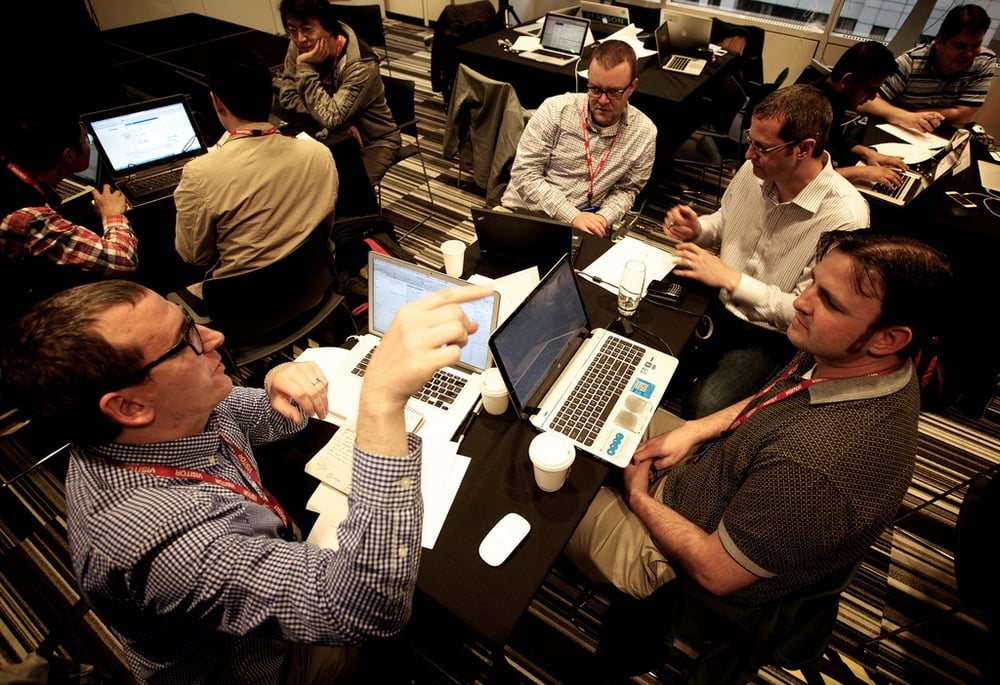5 Reasons Why Hourly Rate Is Better Than Fixed Price

I feel it’s important to write down a couple of reasons why we think fixed-price projects are generally a bad idea in the early-stage business space.
Five reasons why you should never hire a Web agency to do a fixed-price project for a startup and always use an hourly-rate model or similar
1. You end up with a better project
Always. With a fixed-price model, you build specification in the beginning, which means you are effectively making serious decisions when you have the least amount of information. You can’t change (or it gets difficult/expensive to change) when you learn. Give the team you trust a chance to freely pivot and change the direction of the project when you need it.
2. It reduces your risk
It sounds like a fixed-price model should lower your risk – shouldn’t it? Not really. There are two reasons for this:
- accurate, long-term estimations are virtually impossible to make – there is a great summary of the reasons for this here
- once you sign a contract, you are committed to the relationship for at least the duration of the first milestone. It’s harder to track progress, and you are only able to assess the deliverables on milestone handovers.
It’s more of a risk for you than it is for the agency – usually, they are more experienced with dealing with project risks and making sure the contract protects their rights.
3. It gets your priorities in order
In the traditional fixed-price model, from the day you sign a contract, your priorities are exactly opposite to those of the contractor – they want to do the least possible, as the price is fixed, and their profit is only influenced by the number of hours they put into the project, whereas you want them to spend as much quality time as possible on your project, as it costs you nothing. Usually, if you want to accomplish something together, the trick is to try to align the priorities. An hourly rate is much closer to this goal.
4. You can start sooner, and it allows you to move fast
There is much less legal back and forth, because the deal is pretty simple, and the contracts tend to be short and understandable. You can save money by using a template, with little risk. Priorities can always change, and you don’t have to set them in stone before the project kicks off. Have you ever had an important client or investor meeting that suggested you should change the direction of the project? No problem. Let’s stop what we are doing now and start doing the important things right away – no need to renegotiate; no meetings; no overheads.
5. It’s cheaper
Yes it is. Someone on the agency side needs to calculate possible failures into a fixed price – in reality, you don’t get the lowest price, rather the safest for the company. The only person paying for this overhead is you. Dealing with a company that does not have those processes means that you are saving money and paying only for the actual work and experience. You will eventually end up in a discussion regarding whether a requested feature is out of scope or not anyway – don’t waste your time and that of your team.Oh; did I mention the time you are wasting fooling yourself that you can plan every single feature before starting work?
Have you had positive experiences with fixed-price projects? Or maybe you have stories of where you got burned by them? Feel free to share with a comment.
Thanks to @kstarski, @matid and @_tomash for reading drafts and providing great feedback.
You can read more here:
-
www.drdobbs.com/is-fixed-price-software-development-unet/209101238
-
www.scrumalliance.org/articles/70-why-fixed-bids-are-bad-for-clients-
-
www.quora.com/Engineering-Management/Why-are-software-development-task-estimations-regularly-off-by-a-factor-of-2-3
Discussion at HackerNews








